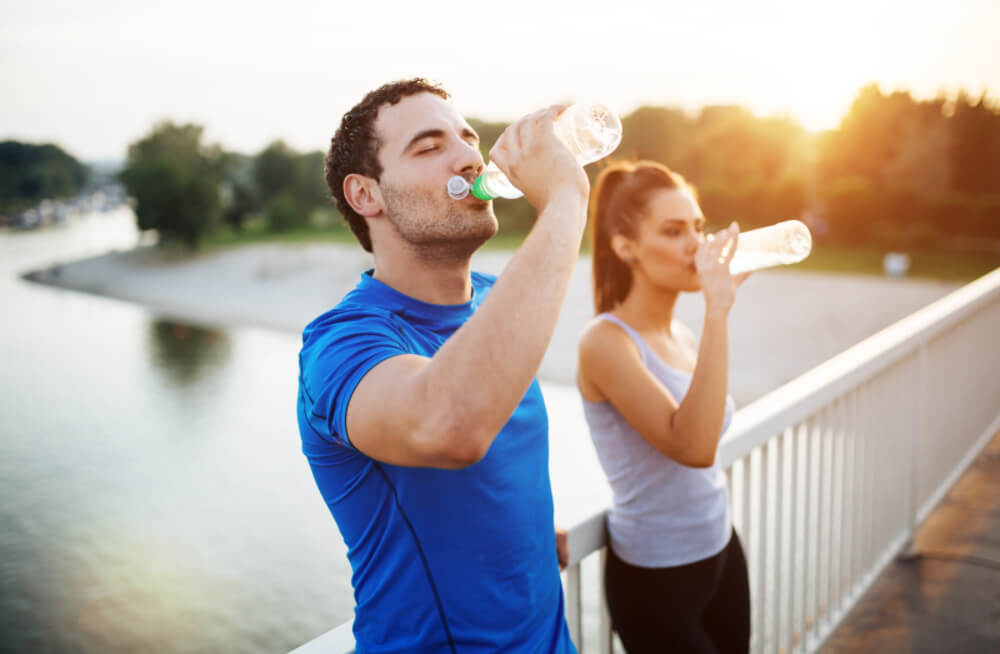The Importance of Proper Hydration and Sleep
The Importance of Proper Hydration and Sleep
Jan 17, 2022

Whether you like water or not, the substance is essential for human health. However, if you don't drink enough water every day, your body will show the effects. You may feel tired, cranky, and your mouth might even taste super salty if you allow yourself to become too dehydrated.
The sad truth is, most Americans are walking around chronically dehydrated, especially the elderly. In fact, dehydration is one of the most frequent reasons for older adults to be hospitalized.
- Symptoms of Dehydration – If you feel thirsty, it's a sign you're already dehydrated. If you feel hungry between meals and snacks, it may also be due to being dehydrated, and your body is trying to get you to put moisture in your mouth in any form if the thirst signal did not work. The worst symptoms are irritability, foggy memory, anxiety, and even death.
- Symptoms of Excessive Hydration – While we want you to be hydrated, don't overdo it. You can drink too much liquid, which can cause muscle weakness, spasms, cramps, seizures, coma, and death.
- Timing Matters Maintain Hydration All Day – For proper digestion, it's recommended that you drink water before and after meals, not during them, before, during, and after exercise, or any time you feel thirsty. Try to drink the water you need throughout the day instead of all at once, ending about an hour or two before when you lay down to go to sleep.
- How Much Water Do You Need? – According to the Mayo Clinic, women need about 11.5 cups (2.7 liters) of water every day, and men need 15.5 cups (3.7 liters) of water every day. This amount helps your body rid itself of waste, keeps your bowel movements comfortable, and lubricates the joints. You may need to modify this amount of water if you exercise, are obese, have other health issues, are pregnant, or nursing. But, again, your doctor is your best resource.
- Keep Your Room Cool – Some water can be lost at night if your room is too hot and you tend to sweat at night. Try keeping your room cool with an air conditioner or fan and the right bedding and nightclothes to help you avoid night sweating.
- Limit Alcohol and Caffeine Intake – Alcohol and caffeine both cause people to get dehydrated by ramping up their urination because the body wants to get rid of the stuff you're putting into it. So if you're going to indulge, make it earlier in the day for caffeine and a few times a week around dinnertime or at holidays for consuming alcohol.
- Elevate Your Legs an Hour Before Bedtime – If you have a desk job or are on your feet a lot, one reason you might find that you want to urinate just when you're falling asleep at night is due to the fact the fluid in your legs now can travel to trigger your bladder. Try putting your feet up before bed to trigger this reaction earlier.
- Use The Toilet Before Getting in The Bed – Make urinating the last thing you do before you hop in the bed to go to sleep. Even if you don't feel the need or urge, it can help empty your bladder fully before lying down.
- Keep Your Path to The Bathroom Undramatic – If you do get up in the night to urinate, ensure that you keep the lighting low but good enough to avoid problems as well as keep your path clear so you don't hurt yourself or fully wake up so you can get right back to sleep.
For some people, chronic dehydration is responsible for most of their health issues. This is because it's such a simple solution to try. But remember, more isn't always better. You simply need enough according to your health, your weight, and your needs.
